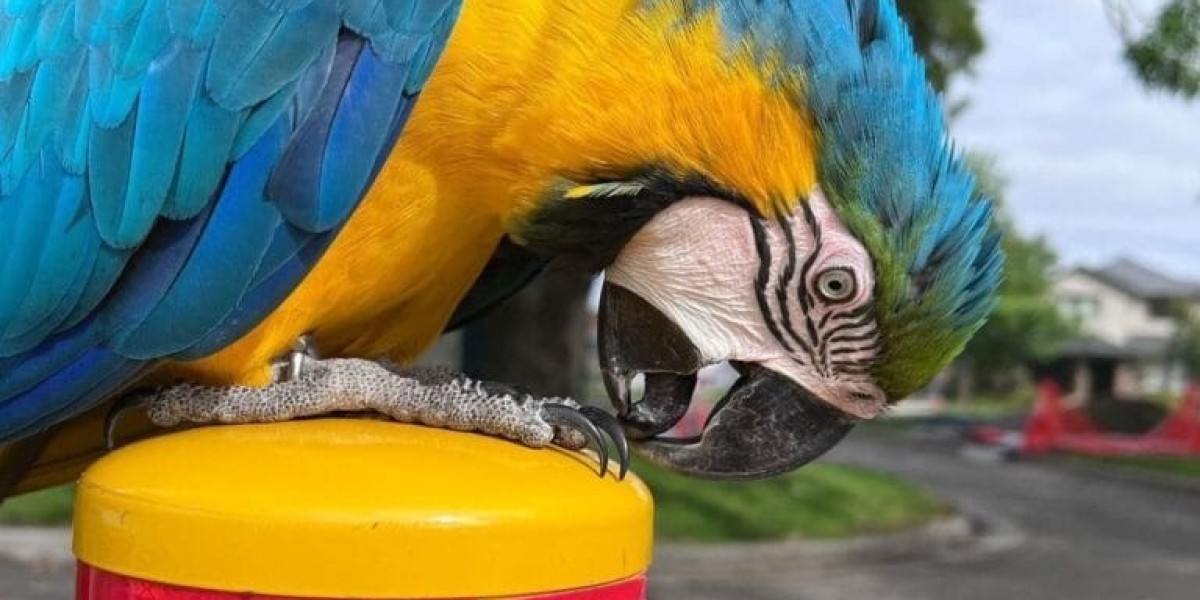The Catalina Macaw is an interbreeding of the Blue and Gold Macaw as well as the Scarlet macaw. They resemble Macaws of Harlequin, but typically have longer tapering tails.
They are extremely social creatures who require hours of interaction each day. They can scream and become loud when they are upset or need attention.
Socialization
It is crucial to get a pet bird after it is brought home. This is the key to a happy and well-adjusted macaw. Proper socialization means allowing your catalina macaw to play around with various toys, interact with other people and other pets and try new foods. It also helps the bird learn to interact with other members of his human community. If socialization is not done properly, a parrot may display behavioral issues such as aggression, feather grabbing and neediness.
A catalina macaw who is well-socialized will be a wonderful companion, and will flourish in the presence of her family. They are an extremely intelligent species and respond well to training. They can be taught various tricks and even speak a language of phrases and words. These birds are intelligent and playful and are a great option for families seeking an animal that is playful.
Our Blue-and-Gold Macaw for sale, Lolita A charming bird with a playful personality. She loves attention and develops bonds with her humans quickly. She is extremely social and highly trainable, making her a wonderful companion for those who are just beginning to become bird owners. She can master a wide range of phrases and tricks, and she loves to talk.
Pixie is another of our macalinas available for sale. . She is a hybrid Macaw, which was bred by two macaws, which naturally occur. The result is a vibrant bird with a vivid plumage. These birds are extremely loved by prospective pet owners but are often misunderstood. If you don't conduct enough research, you might be dissatisfied with their behavior or lack of training skills.
Regular visits to the vet are a good method to keep your pet healthy. If your pet is sick there will be symptoms such as weight loss, abnormal behaviors such as excessive salivation, changes in the color of its feathers. These symptoms are not to be ignored and must be treated immediately.
When you interact with your pet, make sure to pet it only on the head and feet. This will prevent your pet from misinterpreting strokes on the body and head for mating behaviors. It is also recommended to avoid touching the tail or wings, as they might interpret these strokes as a threat.
Training
Macaws that are well-socialized and well-trained are confident, active, playful and outgoing. On the other hand, poorly socialized macaws can be fearful or aggressive, narcissistic, and destructive. To raise a parrot who is well-rounded early socialization and education is essential. This can be achieved by introducing your pet to new people and animals, using a variety of toys, taking them to new places and feeding them a variety of healthy foods.
The Catalina Macaw is a hybrid of blue and gold and scarlet macaws. It has characteristics that are reminiscent of the parent species of each. Scarlet macaws are known for their ability to be feisty and inquisitive while gold and blue macaws are renowned as being friendly and tolerant and are also excellent talking animals. Some macaws can have a vocabulary of up to 15 words or phrases in their lifetime.
They are social birds that thrive upon interaction with their human flock. They will be depressed if they aren't handled often enough. In the wild, macaws are in large flocks; if they are left alone for long periods they will make contact calls to reconnect with their flock. This will sound like a shrill cry.
It is crucial that potential owners think seriously about the ownership of a macaw prior to making the decision to bring one into their home. A macaw properly taken care of can be a wonderful pet, however, they aren't for all. The beautiful birds require plenty of attention, and the costs associated with their care can quickly add up particularly as they grow older. Over the lifetime of a macaw, you will have to pay for medical bills, top quality bird food and toys. A potential owner must be willing to spend 2 to 4 hours each day with their macaw, and provide plenty of chances to play outside of the cage.
Diet
The Catalina is a hybrid macaw that combines the best characteristics of its parent species blue-and-gold macaws, as well as scarlet macaws. It is smart lively, feisty and sociable. Pet owners find this bird an enjoyable companion. The squawks and mimicry it makes are captivating, as is its vibrant coloration and lovable personality. Its sociability makes it the perfect pet for busy families.
If a macaw is old or young, it needs a nutritious diet that includes a variety of seeds, fruits vegetables, pellets, and seeds. Macaws that are fed a seed-and-nut mix are more likely to suffer malnutrition and poor feather quality and live longer when compared to those who eat well-balanced commercial food.
The owners should supplement the macaws food with fresh vegetables, fruits and a tiny amount of nuts. Nuts contain healthy fats which are a valuable source of energy for macaws. They are rich in calories, and should be fed in moderation. Fresh vegetables and fruits are high in vitamins, minerals and antioxidants. They should be fed pellets at least twice every day, along with small pieces of vegetables and fruits.
Proteins are vital to a macaw’s diet as they help repair and maintain tissues. They should comprise 14-20 percent of the macaw's daily intake each day. The protein content in cooked eggs, legumes and a good seed blend are all good options.
It is crucial to keep an eye on the macaws' hydration. It should have access to clean water at all times. You can spot hydration issues early by regularly observing their water intake and watching for any changes in behavior. A macaw who is well-hydrated is less likely suffer from digestive problems or other illnesses. Proper nutrition, hydration and other routines can increase the quality of life of a macaw in captivity, and improve the bond you have with your pet. A knowledgeable avian vet can help you choose a diet plan that is best suited to your cat's requirements. Foods rich in nutrients can improve the health of your cat and boost immunity, as well as encourage feather growth.
Care
Macaws in the wild are trained to eat food from the canopy. Their desire to consume food from above could be a problem. To lessen this behavior, it may be best to feed your catalina macaws with a dish that is not too high in the cage. This can also help avoid overfeeding. Macaws, like all large parrots, should be given a quality seed-pellet mix as well as fresh, bird-safe fruits as well as nuts, vegetables and fruits. The most nutritious food items are fresh greens and whole fruits (never avocado as it can be toxic to macaws). A variety of non-destructible toy will keep your catalina Macaw active and engaged.
Macaws are part of flocks in the wild, and will often consider their caregivers to be part of their own family. As a result, they try to reach them when separated for long periods of time. This usually happens with an ear-splitting call that gets progressively louder over time. This is normal but can be irritating to owners.
 It is essential to take your macalina macaw in to an avian vet for annual examinations and fecal analyses when you first purchase it. Additionally, a reputable vet will perform a blood test to check for bacterial infections and viruses such as Psittacosis.
It is essential to take your macalina macaw in to an avian vet for annual examinations and fecal analyses when you first purchase it. Additionally, a reputable vet will perform a blood test to check for bacterial infections and viruses such as Psittacosis.The Catalina macaw is a hybrid of the blue and gold macaw and the scarlet macaw. It blends the best characteristics of each species to create a welcoming, engaging, and playful pet. Like all parrots however, the Catalina will require lots of interaction with its owner. They is not recommended to be kept in a cage for more than a few hours per day. A neglected macaw will quickly become depressed and destructive.
A Catalina macaw is a wonderful option for those with previous experience in caring for and owning large parrots. It is less likely to become aggressive than other macaw breeds, however, it will require regular handling to maintain an enlightened mental state. Like all animals, it is crucial to have a clean, large cage and to keep the environment well-ventilated.








